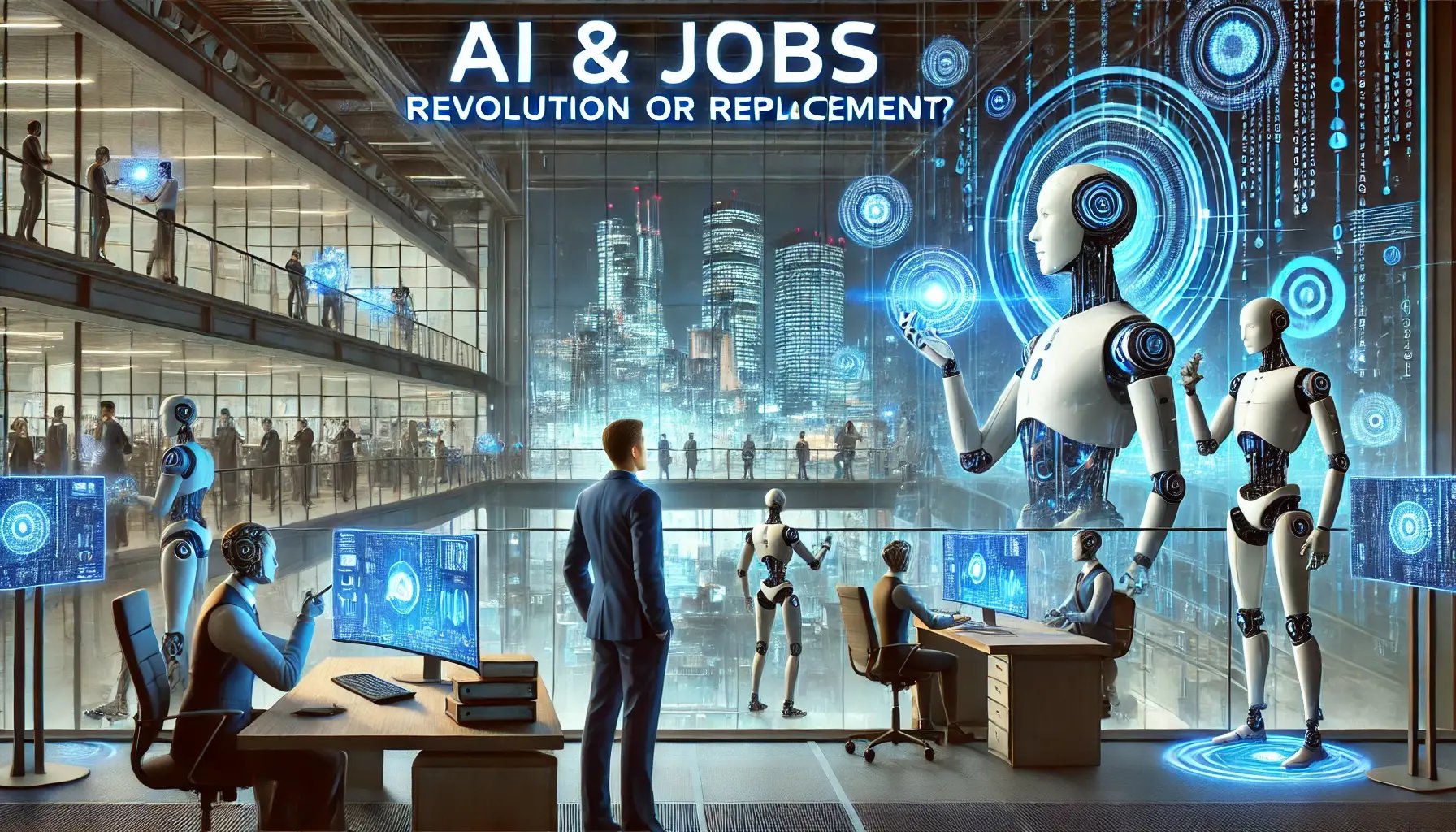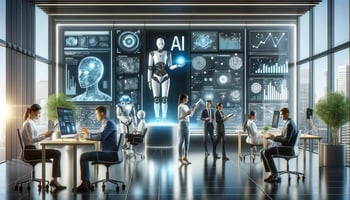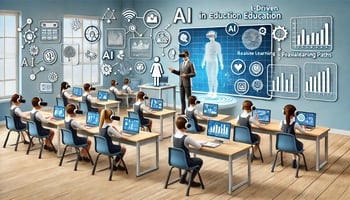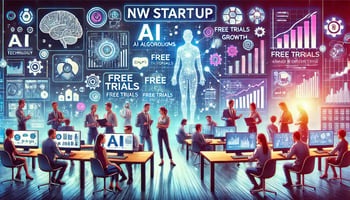In the rapidly evolving landscape of technology, Artificial Intelligence (AI) stands out as a...
Will AI Eliminate Jobs or Create Unprecedented Opportunities?
 The AI Revolution and Its Impact on Work
The AI Revolution and Its Impact on Work
Artificial Intelligence (AI) is transforming industries at an unprecedented pace. From automating repetitive tasks to enhancing decision-making, AI is both a disruptor and an enabler. But one question looms large: Will AI destroy jobs, or will it create more opportunities?
The answer isn’t simple. History suggests that technological advancements often lead to job displacement but also open new opportunities. AI is no exception—it will eliminate some roles, redefine others, and create entirely new career paths.
Let’s dive into how AI is changing the job landscape, which sectors are at risk, and where new opportunities will emerge.
The Reality: Jobs AI Will Replace
AI is exceptionally good at handling repetitive, rule-based, and data-heavy tasks. Here are some job categories that are most vulnerable to automation:
1. Routine and Repetitive Jobs
- Data Entry & Clerical Work: AI-driven automation can process and categorize data faster than humans.
- Manufacturing & Assembly Line Jobs: Robotics and AI-powered machines have been replacing workers in industries like automotive production.
- Customer Service Representatives: AI chatbots and voice assistants are handling more customer interactions, reducing the need for human agents.
2. Basic Analysis & Predictive Jobs
- Financial Analysts: AI-driven algorithms analyze financial markets and predict trends faster than human analysts.
- Legal Assistants & Paralegals: AI-powered legal research tools can scan thousands of cases and contracts in seconds.
- Medical Radiologists: AI-powered imaging tools can detect diseases in X-rays and MRIs more accurately than some human specialists.
3. Logistics & Transportation
- Truck & Delivery Drivers: Autonomous vehicles are being tested for large-scale logistics operations.
- Warehouse Workers: AI-powered robots are streamlining inventory management and order fulfillment in warehouses.
While these roles may decline, AI is also creating demand for new skill sets—reshaping jobs rather than outright eliminating them.
AI as a Job Creator: New Career Paths Emerge
The impact of AI isn’t purely negative. Just as past industrial revolutions led to new jobs, AI is giving rise to new roles that didn’t exist a decade ago. Here’s where the opportunities lie:
1. AI Development & Engineering
- Machine Learning Engineers: Responsible for building AI models and algorithms.
- AI Ethicists: Ensuring AI decisions are fair, unbiased, and ethical.
- AI Prompt Engineers: Optimizing how humans interact with AI tools like ChatGPT.
2. AI-Assisted Professions
- Cybersecurity Analysts: Protecting AI-driven systems from cyber threats.
- AI-Augmented Lawyers & Paralegals: Using AI for faster legal research while focusing on strategy and human judgment.
- AI-Assisted Healthcare Professionals: Doctors leveraging AI to improve diagnoses and patient care.
3. The Human-Centric Jobs That AI Can’t Replace
- Creative Fields: Artists, writers, filmmakers, and marketers using AI as a tool rather than a replacement.
- Emotional Intelligence-Based Roles: Coaches, therapists, teachers, and customer relationship managers still require human empathy.
- Strategic & Leadership Roles: AI may provide insights, but decision-making and leadership still need human intuition and experience.
The Shift: How AI Is Reshaping Work, Not Eliminating It
Instead of seeing AI as a job destroyer, we should recognize its role in reshaping work. Many existing jobs will evolve rather than disappear. For example:
- Marketing Specialists → AI-Enhanced Marketers: AI can analyze consumer behavior, but marketers will use this data to craft better campaigns.
- Software Developers → AI-Assisted Coders: AI can automate coding tasks, but humans will still be needed for complex software development.
- Doctors → AI-Powered Healthcare Providers: AI may assist in diagnostics, but human doctors will provide treatment and patient care.
AI doesn’t replace human judgment, creativity, or emotional intelligence—it enhances them.
Preparing for the AI Economy: What Skills Will Matter?
To stay relevant in the AI-driven world, professionals must adapt and reskill. Here are some high-value skills that will thrive:
1. Technical & AI Skills
- Machine Learning & Data Science
- Python & AI Programming
- Cloud Computing & AI Integration
2. Human-Centric Skills
- Critical Thinking & Problem-Solving
- Emotional Intelligence & Leadership
- Communication & Storytelling
3. Hybrid Skills (AI + Industry Knowledge)
- AI in Law, Healthcare, Finance, etc.
- Human-AI Collaboration
- Ethical AI & Regulation
Learning these skills will future-proof careers, allowing individuals to work alongside AI rather than be replaced by it.
Conclusion: A Balanced Perspective on AI and Jobs
AI will undeniably replace some jobs, but it will also create new opportunities. The key is adaptation—workers and businesses that embrace AI as a tool rather than a threat will thrive in the new economy.
History has shown that every major technological revolution—from the printing press to the internet—initially disrupted jobs but ultimately led to greater innovation and prosperity. AI is no different.
Rather than asking, "Will AI take my job?", the better question is:
💡 "How can I leverage AI to work smarter and create new opportunities?"
What do you think? Will AI destroy more jobs than it creates, or is this just another phase of progress? Let’s discuss!



